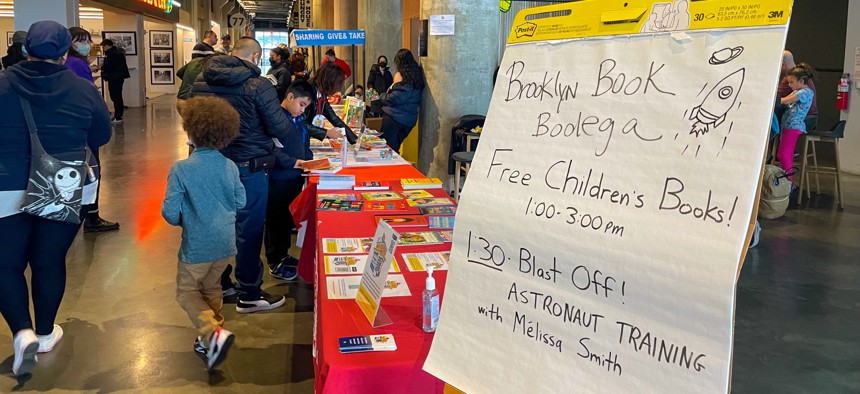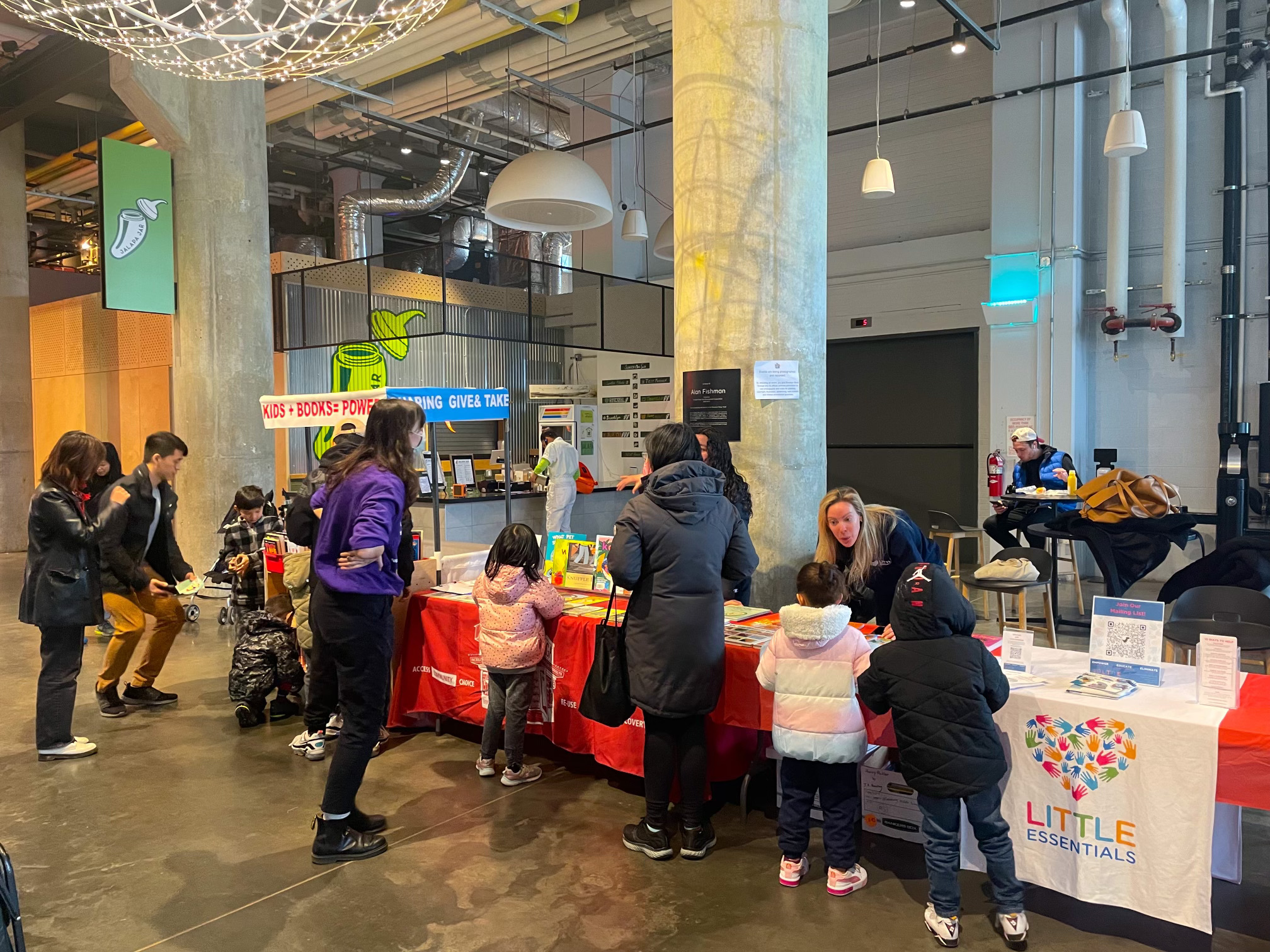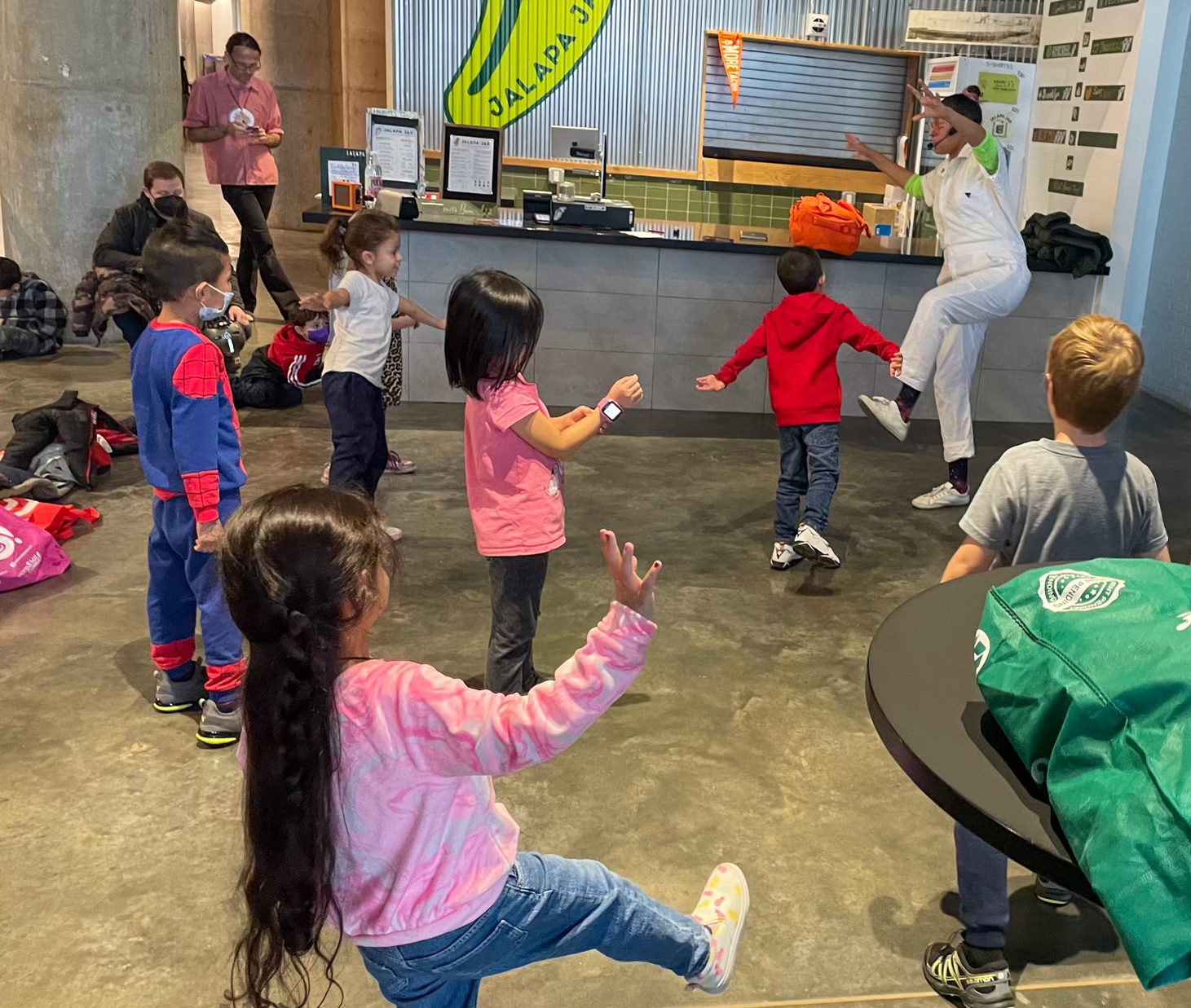Nonprofits
Choice, access, community: How the Brooklyn Book Bodega reaches out
The nonprofit promotes literacy by providing book access to students in Brooklyn.

Children and adults check out the Brooklyn Book Bodega at Building 77 in the Brooklyn Navy Yard earlier this month. Hannah Berman
On a Sunday afternoon earlier this month, the normally-sleepy Building 77 at the Brooklyn Navy Yard was buzzing. In one corner, teaching artist Mélissa Smith was walking a group of kids through an interactive astronaut training session; parents and kids were scattered on chairs and the ground all through the space; and in the center of it all, there was a table marked with the words CHOICE, ACCESS, and COMMUNITY, covered in books.
Those books were provided by the Brooklyn Book Bodega, a non-profit founded in 2018 with the mission of promoting literacy by providing book access for students in Brooklyn. The Brooklyn Book Bodega isn’t named for a physical space; instead, the name references the fact that there is a bodega on almost every block, and the co-founders’ belief that book access should be just as ubiquitous as the bodegas that line the streets of this city.
Co-founders Seema Aghera, Rebecca Cohen, and Tamara Jachinowicz met because their kids all attended the same school. Cohen says that the trio noticed some children were arriving to kindergarten very “school-ready” – they knew how to turn the pages of books, and were able to recognize stories—while other kids were handling books for the first time in the classroom. This struck them as unfair.

“When it comes to books, there's huge inequity and disparity in access,” said Cohen, also executive director of the BBB. Inspired by the differences they observed in their own children’s classrooms and the documented existence of “book deserts” in Brooklyn, the trio decided to create what they refer to as a “third space” between libraries and bookstores: a space that could provide books for free.
Cecilia Golombek, program and volunteer coordinator, explained that they want every BBB book to feel like a gift. “Kids are going to have a very different connection to a book that they selected for themselves,” she said, stressing the importance of making the book selection process feel exciting for kids in order to promote intrinsic interest in reading.
This means that donated books are held to a high standard. The BBB generally gets a mixture of new and used books from publisher giveaways and book drives. When used books are donated, teams of volunteers are tasked with processing them, first by weeding out any books that have been what Golombek calls “aggressively enjoyed,” and then by sorting them into age-range boxes to make it easier for kids to find what appeals to them.

One of the goals of this sorting process is to spotlight BIPOC and LGBTQIA+ representation. Golombek explained, “We want to make sure that there is very clear representation within the books we give out, so kids can see either a mirror of themselves or a window into another culture and way of thinking.” Volunteers sort books with positive representation into special boxes, which are then given more visibility at giveaway events. “It's such a different experience when you are able to go up to the table and see yourself on that table,” Golombek said.
Something important about BBB giveaways is that they are always need-blind. “In the world we live in, there are so many ways that we divide ourselves,” Cohen told New York Nonprofit Media. She and the other co-founders wanted the BBB to be an intentional community of people who come together across those dividing lines, where a person can participate as both a donor and a recipient if they so choose. The result is a profoundly accepting space: Cohen said, “You know, we've had people say, ‘I didn't have to show you my ID, and it makes me so happy to be here and not have to jump over these hurdles to get this thing that I think I need,’ and that’s why we do this.”
That lack of barriers to access was on display at this particular Sunday’s event. Excitement was evident in the shy, curious hands of kids working their way over the tables to find the perfect book. One kid chose his book and took off running, screaming to his parents and anyone else who could hear, “Look what I found!” That joyful cry is exactly what the co-founders envisioned – kids getting the opportunity to feel excited about reading, without constraints.